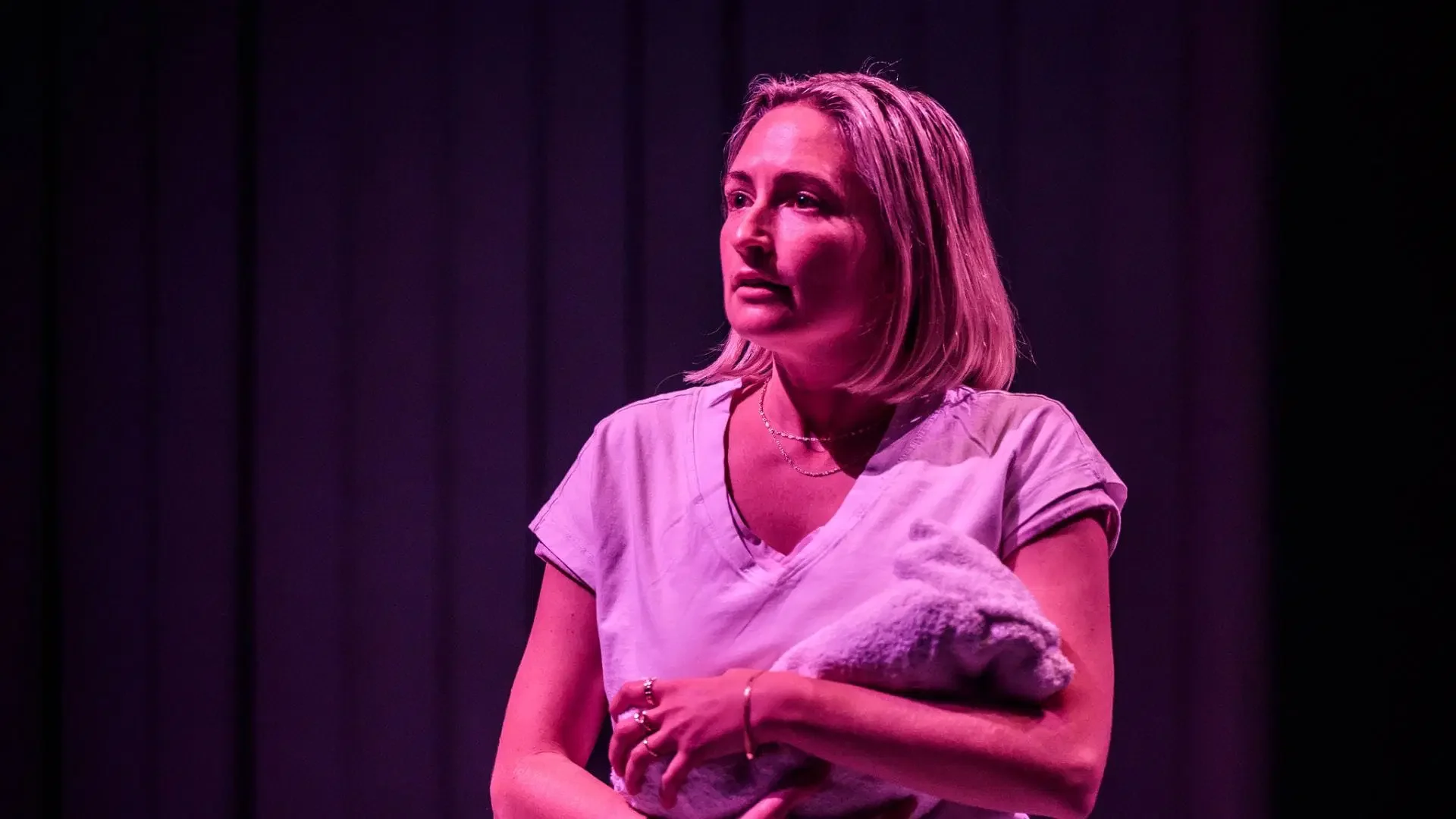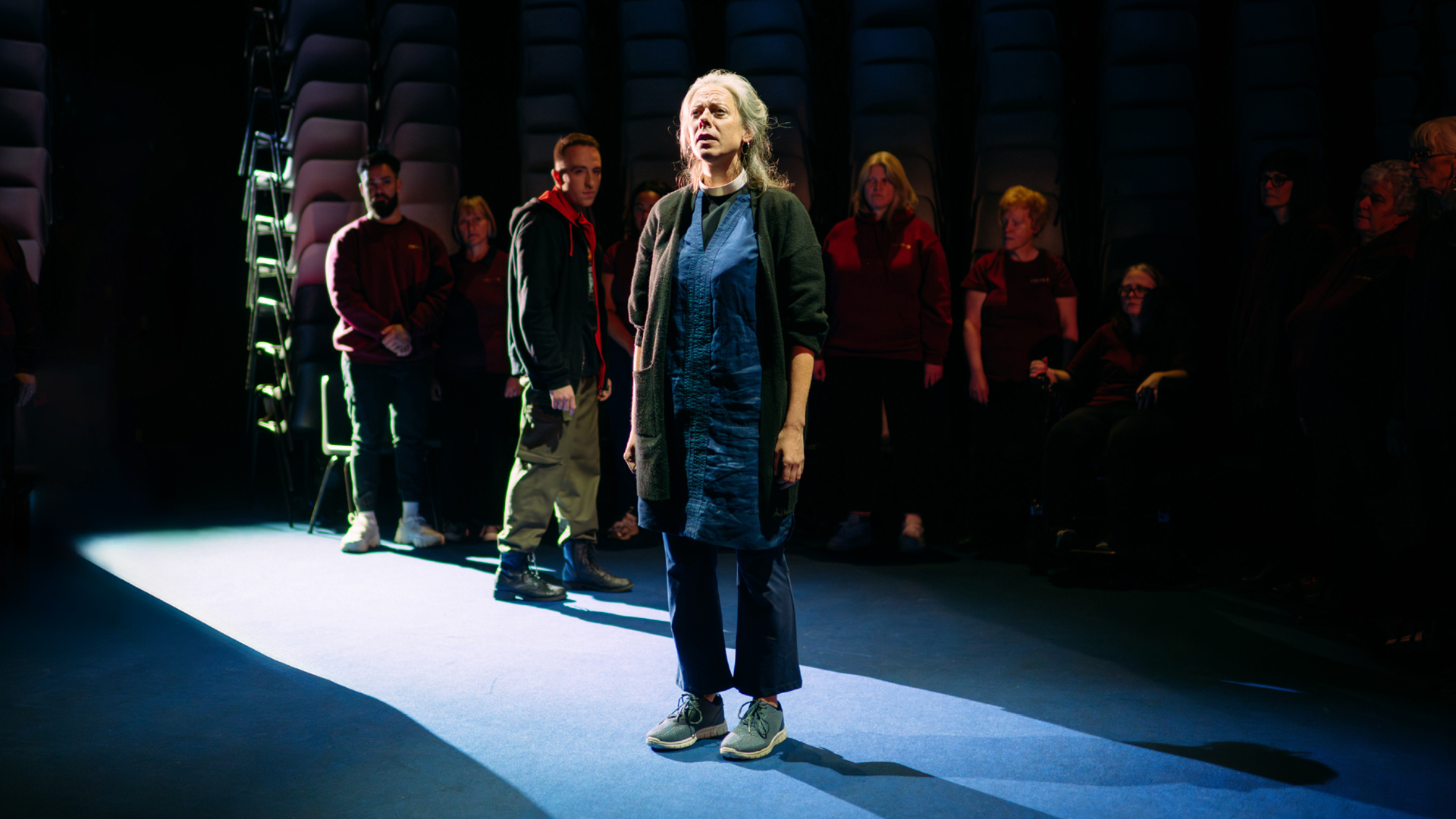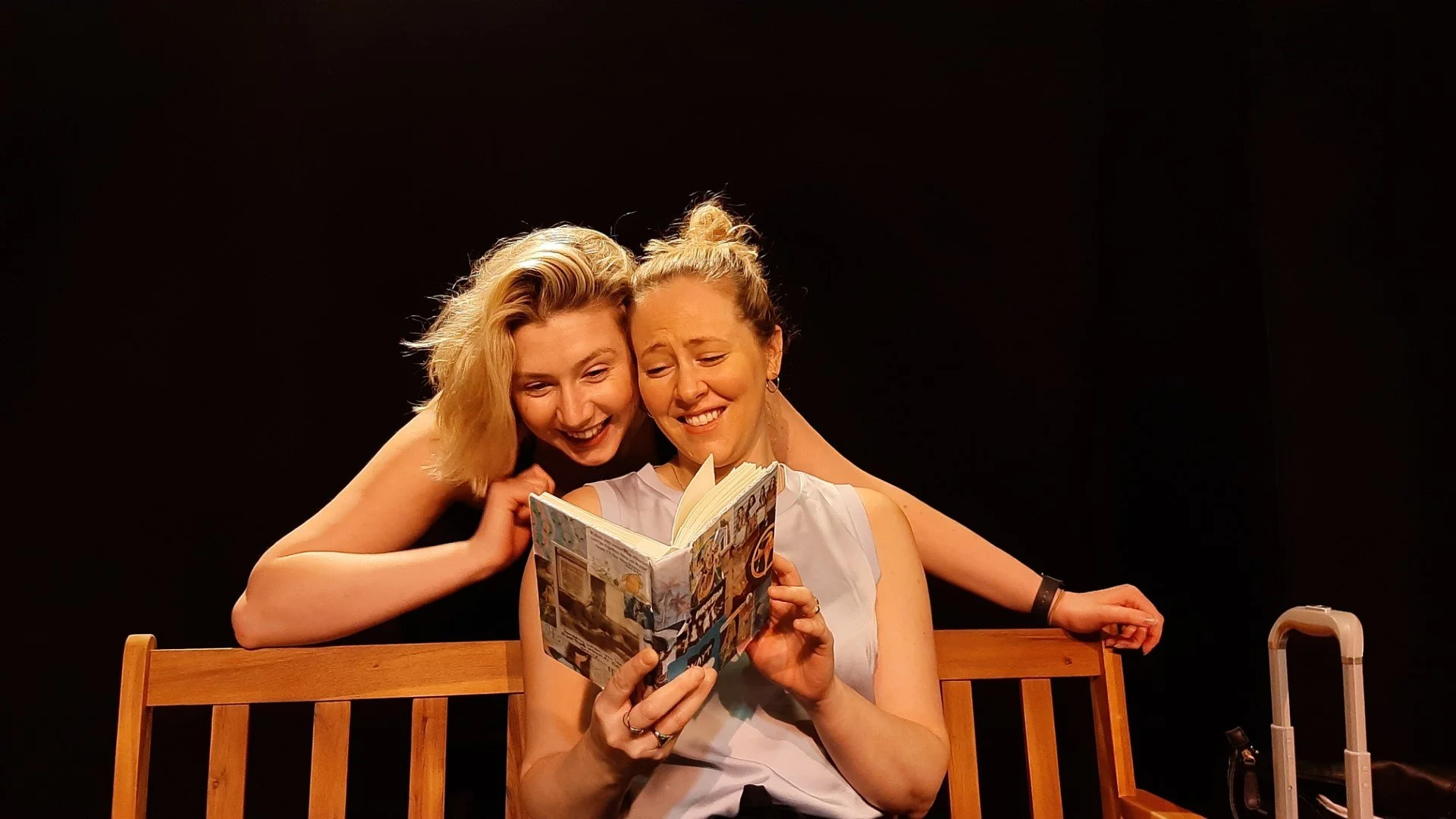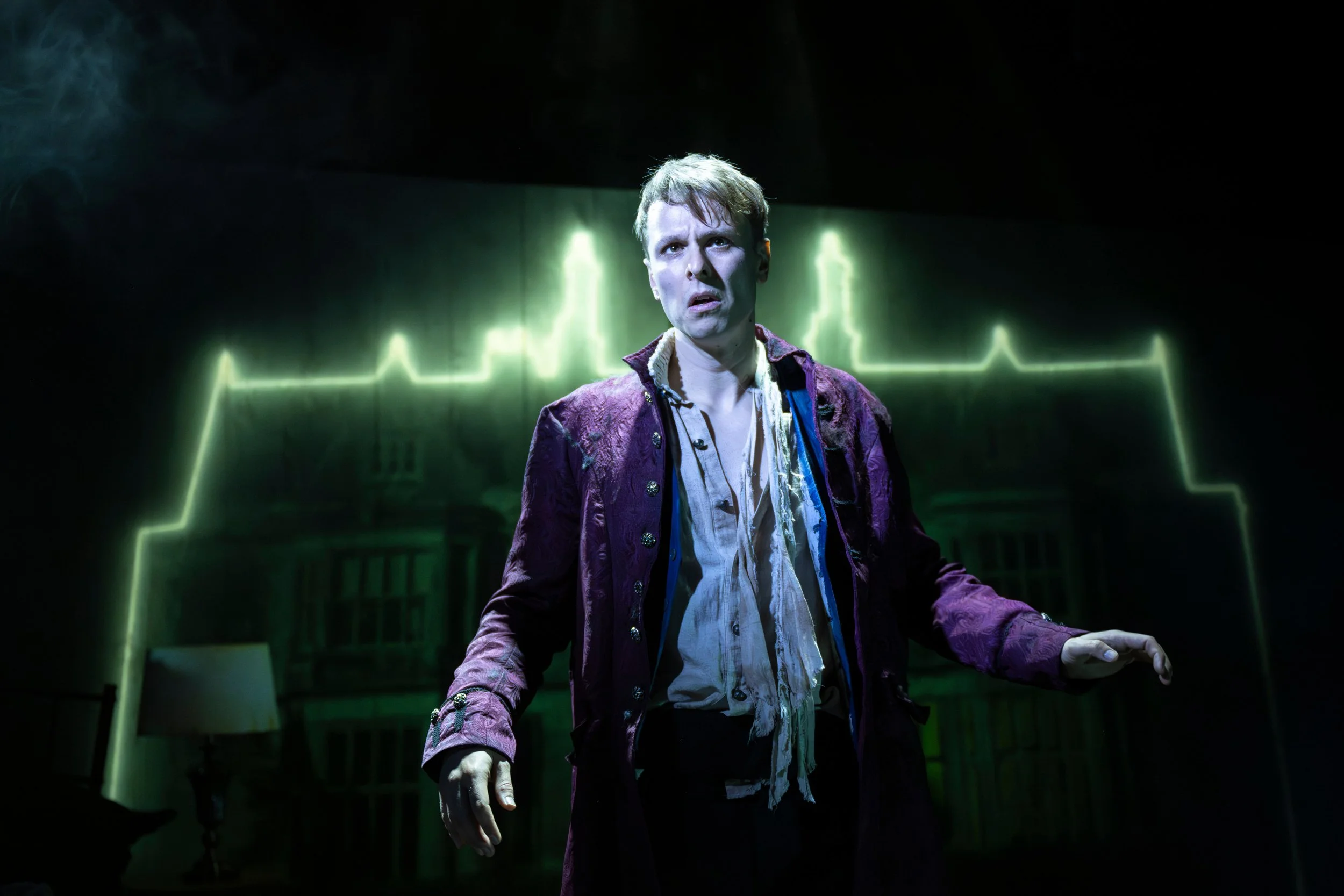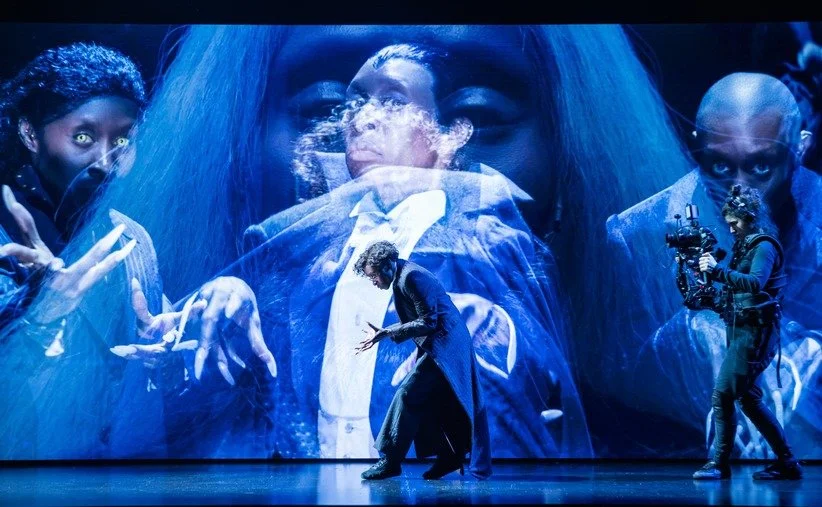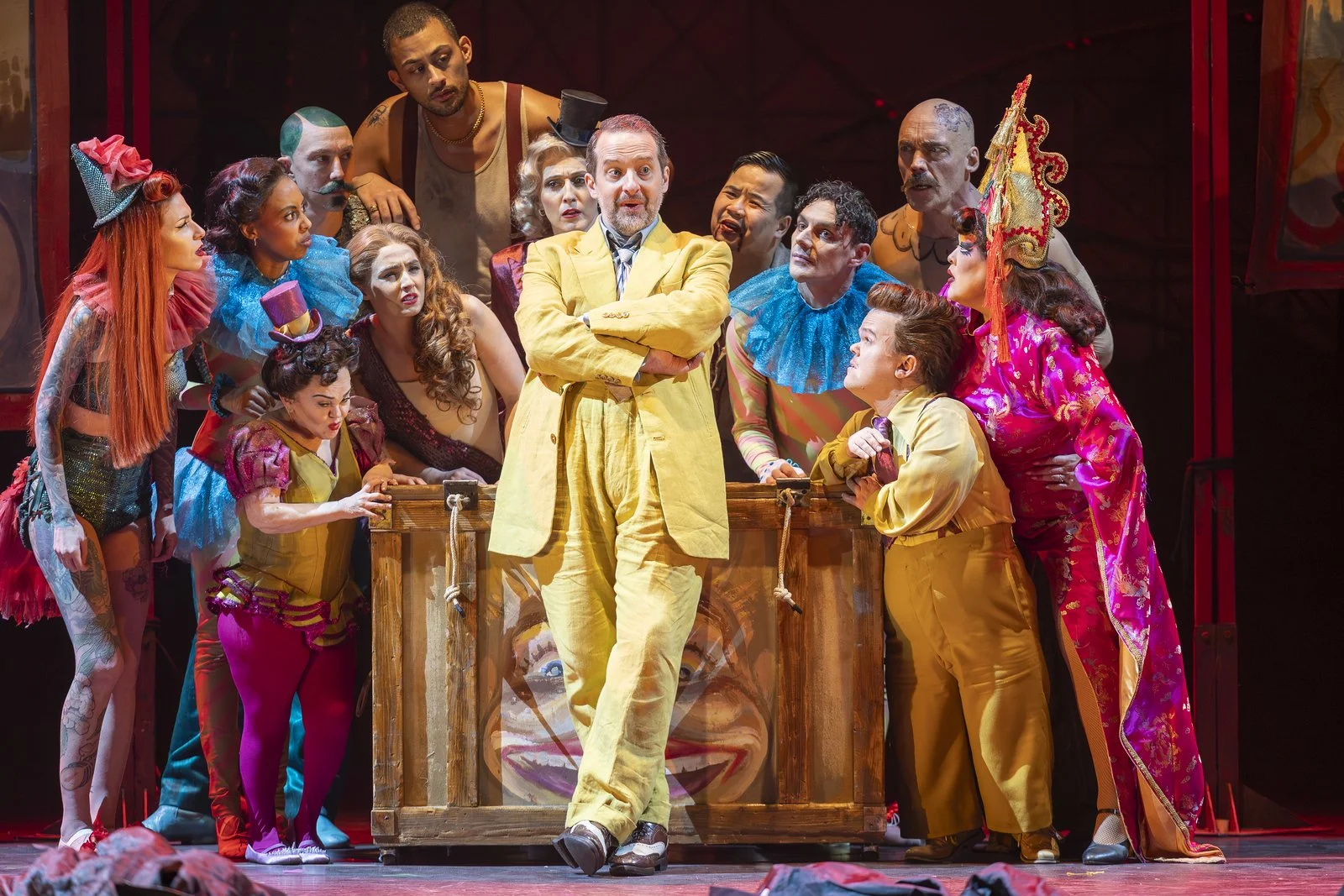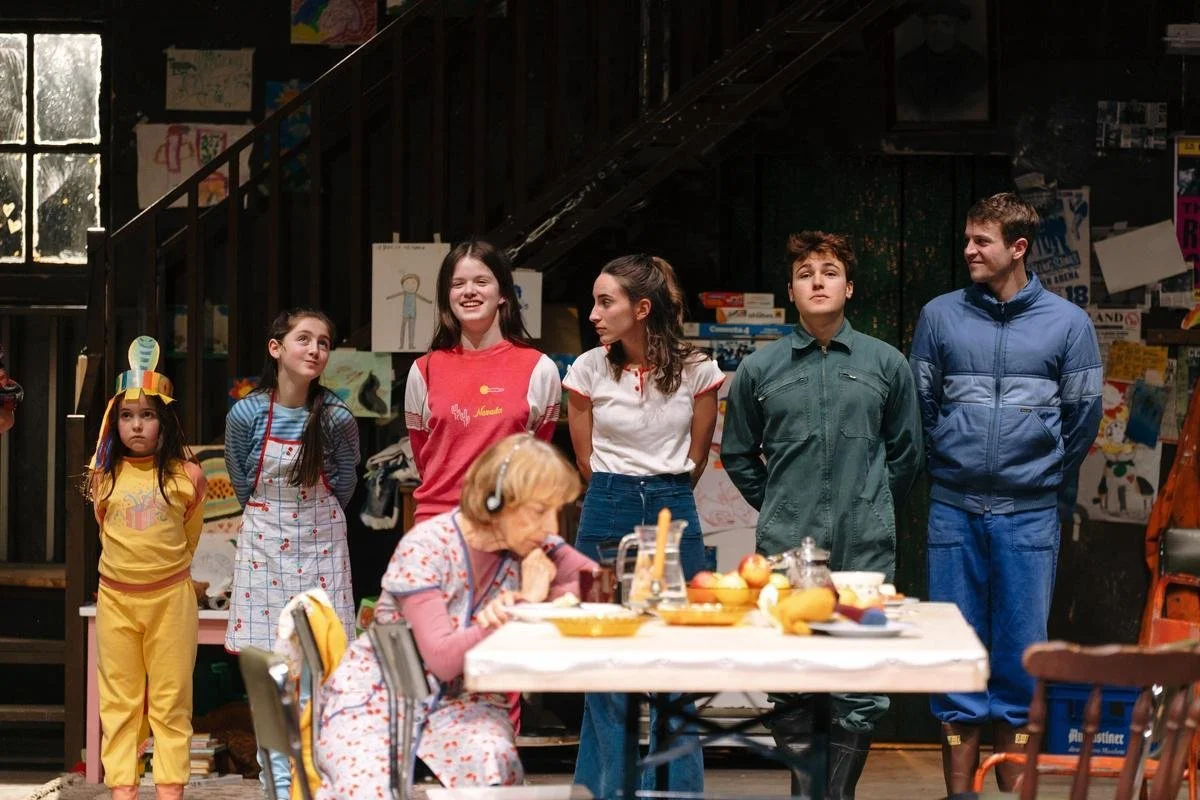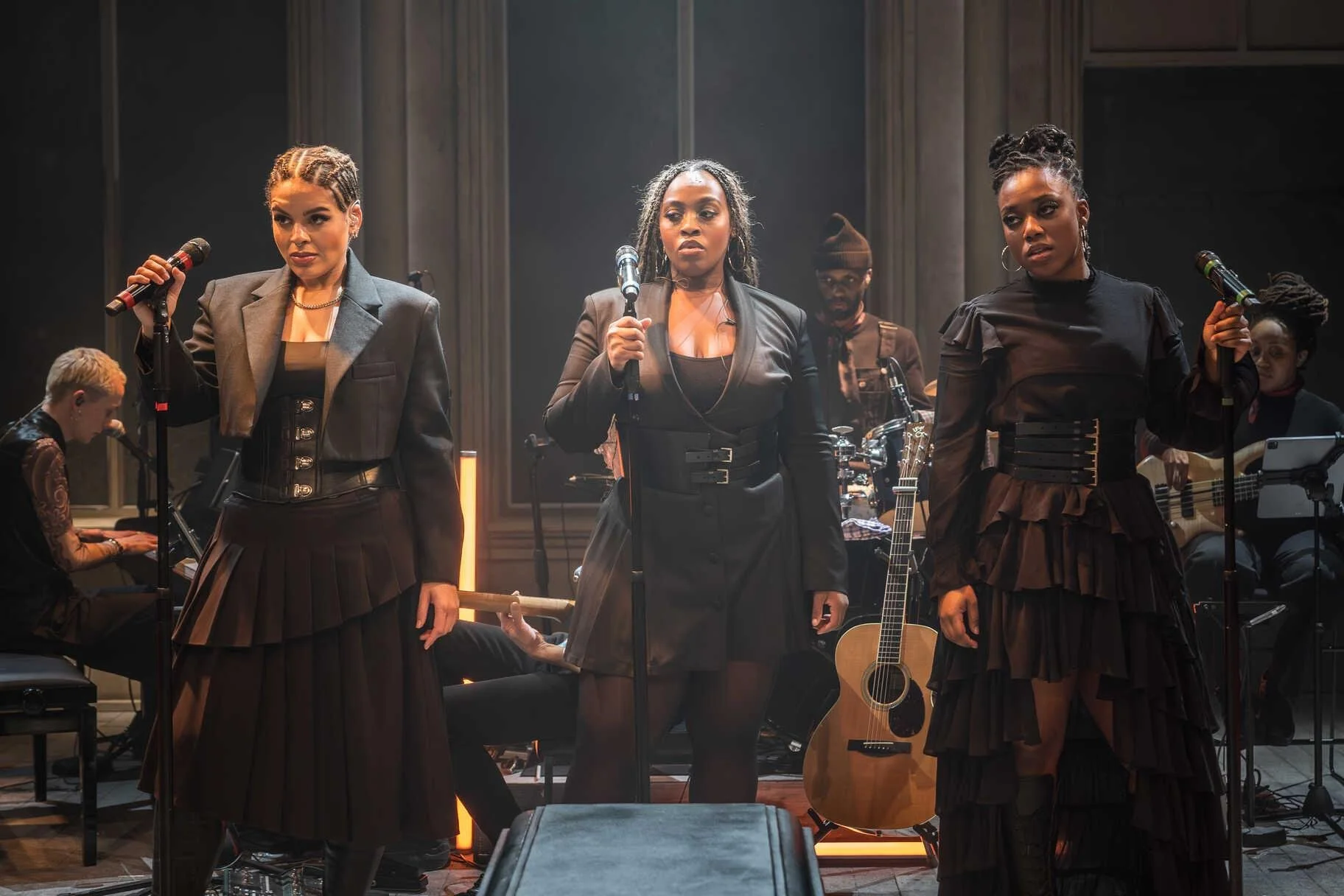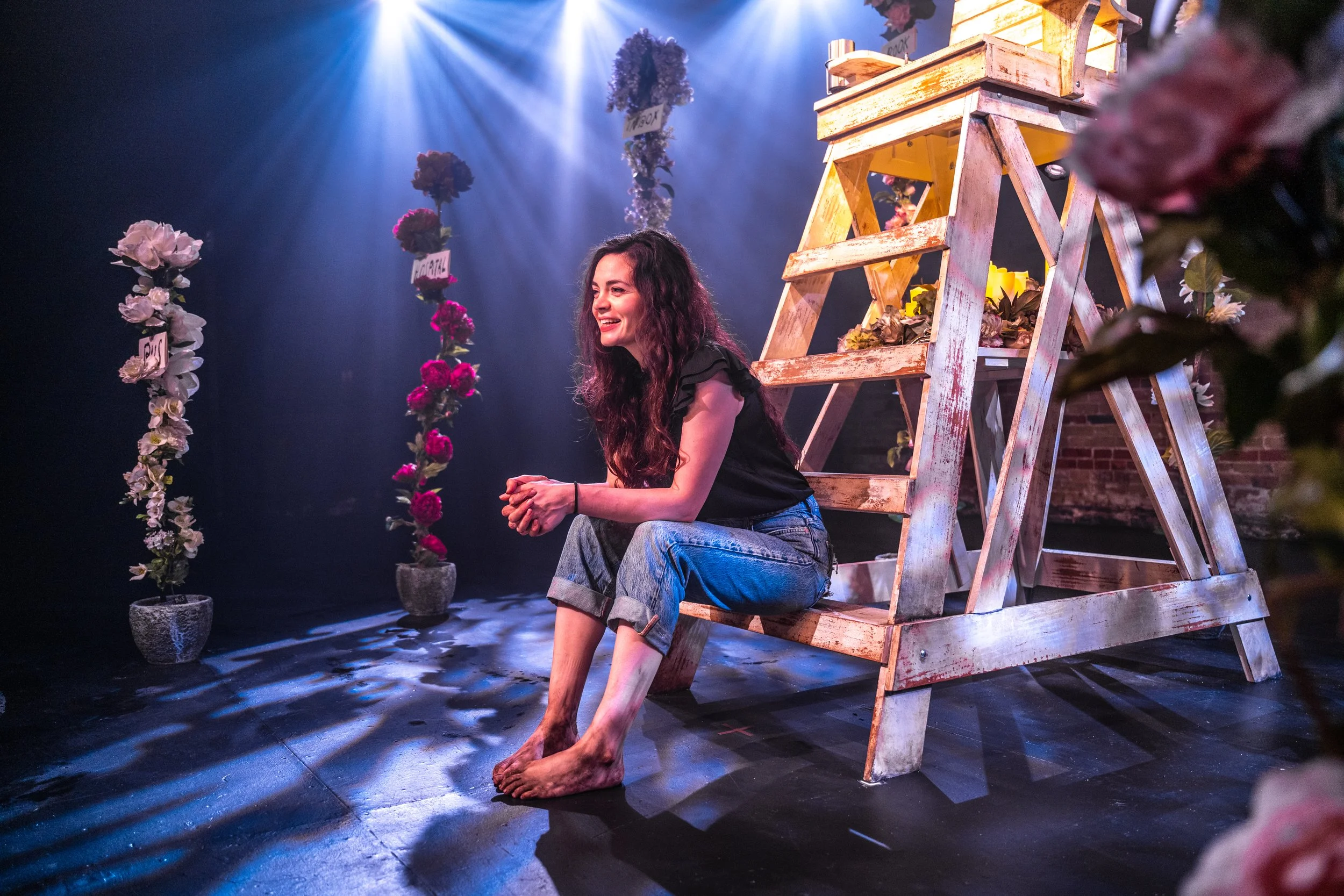(the) Woman at Park Theatre Review
Lizzy Watts in (the) Woman. Photo by Charlie Flint
Written by Cathie for Theatre & Tonic
Disclaimer: Gifted tickets in exchange for an honest review
If parenthood is the supposedly most natural experience in the world, why do so many struggle so much? (the) Woman is a new play written by Jane Upton and produced by New Perspectives seeks to explore this question through M, a woman struggling after the birth of her child and is trying to scramble together the pieces of her identity, career and life. This is a play which takes an unfiltered, crass and incredibly raw dive into the challenges of motherhood as experienced by M.
The minimalist set, designed by Sarah Parks, focuses the attention solely on the strong performances of the cast, contains many nooks and hidden compartments, which are a clever allegory for the trauma of the characters. The cast are truly brilliant and has excellent chemistry together. Jamie Rose Monk was truly powerful in her depiction of many different characters, whether the clinical publishing agent, the frank midwife or the devastated mother whose child died in the NICU. André Squire is phenomenal in showcasing M’s husband and the challenges in connecting with your partner in early parenthood with vulnerability and frustration. Josh Goulding is excellent at openly portraying repellent characters and contrasts that powerfully with foils who are tender and dedicated to their families. Lizzy Watts is an incredible powerhouse who holds the audience spellbound in her portrayal of M. M is a character who is deeply unlikeable and one who is both fractured after the birth of her two children, who she loves deeply but is incredibly overwhelmed by, and someone who also aggravates and pushes away others who are sincerely trying to help her and is at times so sunk into her own anxiety and trauma she can’t see the strain others in her life is facing.
The themes of motherhood are explored in depth throughout, from the worry of a lockdown drill, the difficulties of breastfeeding, to the all-nighters, M is put on stage as both vulnerable and fighting her way through it. Many painful truths, such as difficulties with her partner and changes in career, are cleverly showcased in frank ways which play with the transparent 4th wall. I was especially impressed with the way the play demonstrated camaraderie and community within the NICU unit and the strength and heartbreak of the families there. The play within a play context does not always positively showcase women or motherhood and can stray into painful caricatures of mothers, such as M’s sex dreams and flirtations with any other man she comes across. Unfortunately, this is also a stereotype and negative connotation many women experience, but the displaying of it is not always as the author intended, perhaps. The loose play within a play narrative works well for London, as do the cheeky jokes on telling the audience what to think.
At 100m running time with no interval, the pace rises and dips over different events. This is a play “centred around the menstrual cycle” instead of a traditional three act play. At times this works very well to showcase the passing of time and how M is struggling with the changing in parenting and dealing with a very unwell newborn but can also make the differing scenes feel disjointed and confusing in how they are laid together, such as the scene at the beginning with her teenage ex and a very uncomfortable moment with a father at her child’s nursery.
At its heart, this is a play about a woman trying to find her own identity, both pre-motherhood and post-birth, in a world which seeks to squeeze everyone into neat boxes. The Woman is raw, powerful and a rallying roar to all women to express the challenge as well as the joy of motherhood. It is wonderful to see a play which so determinedly tackles topics such as infant loss and parents’ mental health in an unflinching and frank discussion. If you enjoy plays which are not afraid to showcase the stress of motherhood and its challenge as well as its impact on your identity, then this is the show for you.
Playing at Park Theatre until 25 October
★★★★

